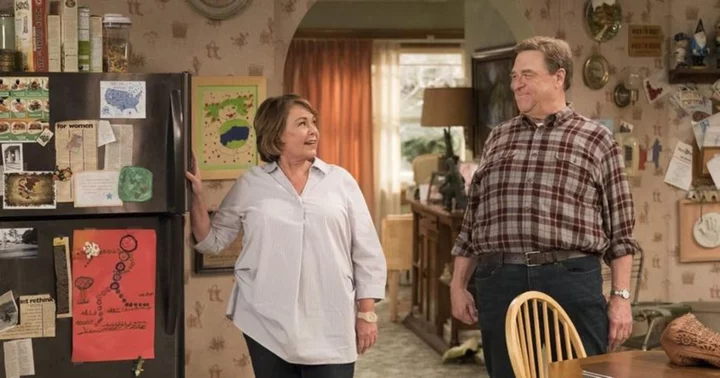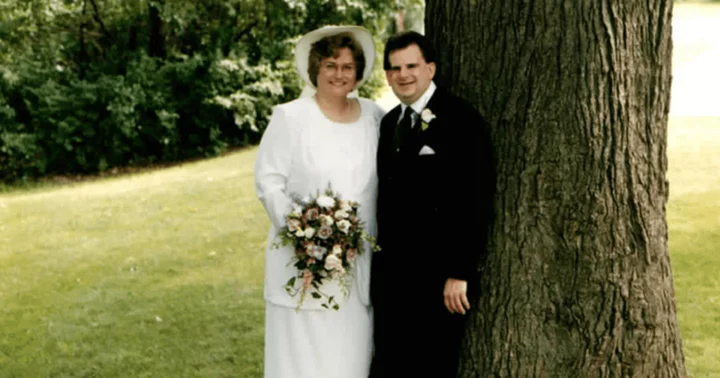LOS ANGELES, CALIFORNIA: On October 18, 1988, the iconic television sitcom 'Roseanne' made its debut on ABC.
The groundbreaking show, starring comedian Roseanne Barr, offered a realistic portrayal of a working-class American family and the challenges they faced. Roseanne Conner, portrayed by Barr, was a stark departure from the traditional TV housewife, challenging stereotypes that had been prevalent in shows like 'Leave It to Beaver' and 'The Brady Bunch'.
The program quickly became a ratings hit, running for nine successful seasons, accumulating numerous awards, and propelling Barr to stardom. 'Roseanne' was even revived in 2018, attesting to its enduring popularity.
The show was set in the fictional town of Lanford, Illinois, where the witty and often boisterous Conner family lived.
The Conner family dynamic
Roseanne's husband, Dan, was played by John Goodman, and their household included daughters Becky (alternating between Lecy Goranson and Sarah Chalke), Darlene (Sara Gilbert), and son DJ (Michael Fishman). Roseanne's younger sister, Jackie (Laurie Metcalf), was also an integral part of the family.
The show featured a substantial supporting cast, with appearances from young actors like George Clooney and well-known figures such as Estelle Parsons, Shelley Winters, Martin Mull, and Sandra Bernhard, among others.
Roseanne Barr's journey to stardom
Roseanne Barr, born on November 3, 1952, in Salt Lake City, Utah, began her career in stand-up comedy at clubs in Denver.
She drew from her experiences as a wife and mother of three children to fuel her routines, coining the term "domestic goddess" to describe the life of a housewife.
By the mid-1980s, Barr had risen to national fame, and in 1988, her self-titled TV show premiered on ABC.
During her television career, Barr became a tabloid sensation, with her family, personal appearance, and romantic relationships under constant scrutiny.
Her marriage to actor Tom Arnold from 1990 to 1994 and subsequent marriage to Ben Thomas from 1995 to 2002 were closely followed by the media.
In June 1990, Barr caused controversy by delivering an off-key, screeching rendition of the Star-Spangled Banner at a Major League Baseball game in San Diego.
Her actions, including spitting and grabbing her crotch, were seen as a humorous imitation of baseball players and garnered widespread criticism.
The original run of 'Roseanne' concluded on May 20, 1997, after which Barr hosted her own talk show from 1998 to 2000. In 2018, 'Roseanne' was resurrected for an 8-episode revival, set 20 years after the events of the ninth season.
The revival was initially renewed for an eleventh season but was abruptly canceled by ABC following a series of controversial and racist tweets by Barr. However, a spinoff, titled 'The Conners' and without Barr, premiered later in 2018.
'Roseanne' marked a significant moment in television history, offering a realistic and unvarnished portrayal of a working-class family in the United States.
The show's humor was often laced with poignant commentary on the economic struggles and challenges faced by ordinary Americans, resonating with viewers during a time of economic uncertainty.
Roseanne Conner: Redefining family on TV
The character of Roseanne Conner was groundbreaking, as she defied traditional gender and societal norms, challenging the prevailing image of the perfect housewife.
Decades later, 'Roseanne' and similar shows like 'Murphy Brown' came to be seen as pioneers in redefining the concept of family values and depicting contemporary, imperfect, and relatable families.
These series laid the groundwork for future shows such as 'Modern Family', 'Fresh Off the Boat', and 'Transparent', which continued to explore diverse family dynamics in television.
'Roseanne' remains an important cultural touchstone, and its impact on television and societal norms continues to be felt to this day.









